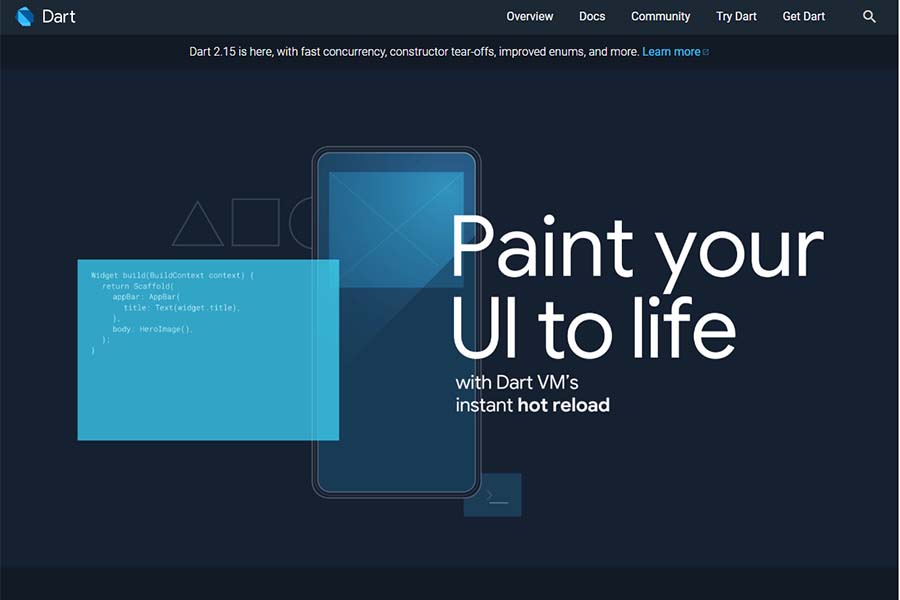What Is Dart
We’re not talking about the game of darts here! Instead, we’re talking about a programming language developed by Google engineers for building apps across platforms. Read on to learn more about Dart, the language that powers Flutter, one of the most popular software development kits around.
What is Dart – Programing Language
With Dart, developers can create web, desktop, and mobile apps. Developers use it for front-end development, to create the interface and the client-side part of an app. Google uses Dart for some of its important apps, which makes it one of the best-known programming languages to appear in the last decade or so.
Like other programming languages, Dart includes sets of instructions that developers can use to create algorithms that define the functionality of an app or other piece of software.
What is Dart – Advantages
What makes Dart different from older programming languages? Here’s an overview of some of its strongest points.
Easy to Learn
Dart is easy to learn compared to other programming languages. What’s more, developers who are familiar with JavaScript can pick it up without much trouble. This is true not only of the language itself, but also of the tools, libraries, and whole ecosystem associated with it.
Flexible
Dart enables developers to create mobile apps that can run on both iOS and Android, or that can run on all web browsers. The ability to create cross-platform native apps is one of Dart’s best-known features.
Designed for Productivity
Dart helps developers to infer types. The built-in data type detection makes programming easier for developers, enabling them to save time. Not all programming languages are equally productive, but Dart is good at this.
Integrates Well with IDEs
Strong General-Purpose Programing Language
Dart is a robust choice for most developers building web, mobile, or desktop apps. More than being accessible and fast to work with, it compiles quickly.
What is Dart – Limitations
Like all programming languages, Dart also has its limitations. Despite the attention it’s been receiving in recent years, it’s nowhere near as widely used as other programming languages. In other words, finding support for certain issues may be harder for developers not familiar with it.
Following from that point, many developers still don’t know Dart, which can make it challenging at times to put together a Dart team or find a replacement for an experienced Dart developer.
What is Dart – Uses of Dart
Probably the best-known use of Dart is in the Flutter software development kit provided by Google for developers writing mobile apps. All apps built with Flutter use Dart.
Google also uses Dart in some of its best-known platforms, including Google Ads, which is a major revenue stream for Google.
There is also some adoption of Dart outside of the Google ecosystem and Flutter apps, but the language owes much of its popularity to these two.
What is Dart – The Bottom Line
While not all developers know Dart, this language’s accessibility and usefulness make it worth knowing for most developers. Apps built with Dart are ready for the expectations of users, whether we’re talking about Flutter apps or not.
In the end, Dart looks like it’s here to stay—choosing it for your project can be an inspired choice, especially since it may help you optimize costs and bring the app you want to life faster than other programming languages.
Dart Programming Language Resources
- Official Dart Website – Dart is a client-optimized language for fast apps on any platform
- Dart Language Overview – Extensive Overview of the Dart Programming Language
- Official Flutter Website – Flutter transforms the app development process.
- Dart API – Official Dart API reference documentation
